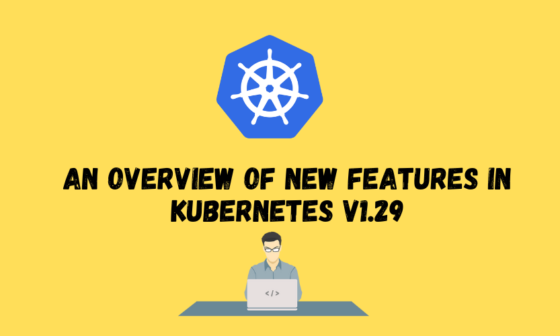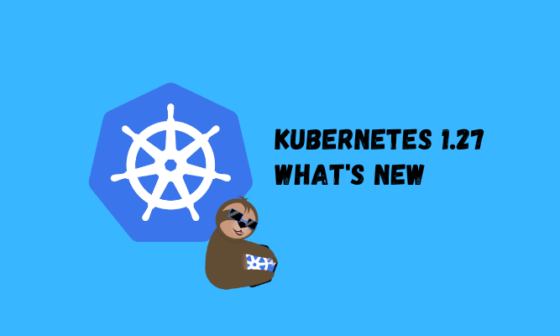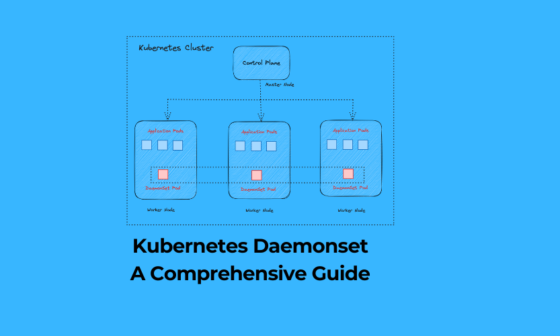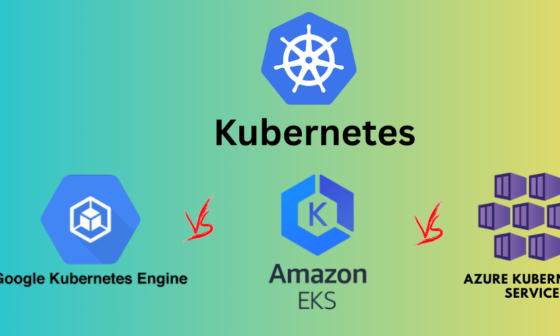Imagine you’re running a business with different departments that need to work together smoothly. Each department has its own tasks and responsibilities, but they also need to collaborate and share information with one another.
In the world of technology, applications or software systems often work in a similar way. They are divided into smaller parts called services ( lets say micro services) , which are like different departments. These services need to communicate with each other to accomplish tasks efficiently.
However, in complex technology environments, such as those using Kubernetes, it becomes challenging to manage and control this communication effectively. There are several issues that can arise. For example, what happens if one service is not available to respond? How can we ensure secure and authorized communication between services? How can we monitor and troubleshoot any problems that may occur?
This is where a service mesh comes in. Think of a service mesh as a specialized layer that sits between the services in your software system, acting as a communication network. It provides a set of tools and rules to manage and control how services interact with one another.
What is Kubernetes Service Mesh
A Kubernetes service mesh is an infrastructure layer dedicated to facilitating efficient service-to-service communication within a Kubernetes environment. It goes beyond the capabilities of the Container Network Interface (CNI) and adds functionalities like service discovery and enhanced security.
Key components of a Kubernetes service mesh include:
- Data Plane: Lightweight proxies, like NGINX or Envoy, deployed as sidecars alongside application Pods. These proxies manage traffic between services, ensuring seamless and secure communication.
- Control Plane: Manages proxy configurations, issues TLS certificates for security, and facilitates policy management. It also collects telemetry and metrics, with some service mesh implementations offering tracing capabilities.
- The Kubernetes cluster it resides on
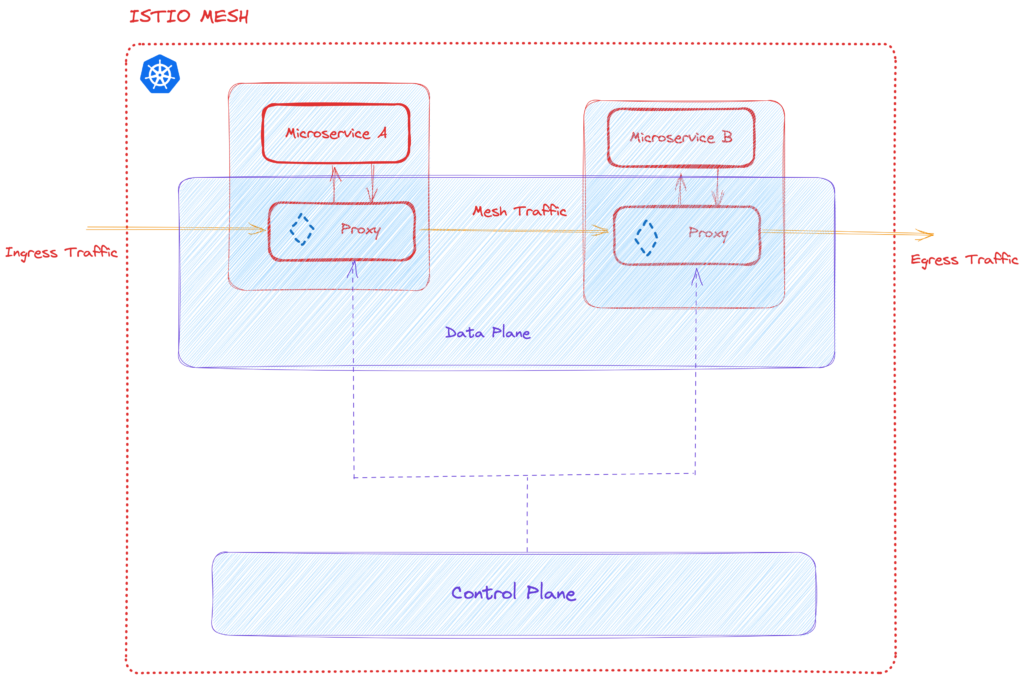
Challenges Solved by Kubernetes Service Mesh
Kubernetes service mesh addresses several challenges in microservices architecture, providing solutions that enhance observability, security, and reliability. Here is a more detailed, human-written version of the challenges and solutions:
- Challenge: Limited observability in microservices architecture
- Solution: Service mesh improves observability by providing service-level visibility, tracing, and monitoring. This allows for better troubleshooting and incident mitigation, making it easier to manage and maintain complex microservices architectures .
- Challenge: Ensuring security and effective traffic management in microservices
- Solution: Service mesh standardizes and automates various aspects of security, service discovery, traffic routing, load balancing, and service failure recovery. This simplifies the management of microservices, ensuring a secure and efficient environment for service-to-service communication .
- Challenge: Handling the complexity of microservice deployments
- Solution: Service mesh helps manage the complexity of deployments by handling communication between services and abstracting away infrastructure concerns. This allows development teams to focus more on application logic and reduces the operational overhead of managing microservices.
- Challenge: Modernizing legacy applications and migrating to Kubernetes-based microservices
- Solution: Service mesh serves as a bridge for modernizing legacy applications by enabling gradual migration to Kubernetes-based microservices without changing the mode of communication between services. This makes it easier to transition to modern architectures without significant disruptions .
- Challenge: Implementing advanced deployment strategies and production testing
- Solution: Service mesh enables advanced deployment strategies like blue/green deployments and chaos testing in production scenarios. This ensures that new features and updates can be rolled out safely and efficiently, minimizing the risk of downtime or performance issues .
$395 $316
- Upon registration, you have ONE YEAR to schedule and complete the exam.
- The CKA exam is conducted online and remotely proctored.
- To pass the exam, you must achieve a score of 66% or higher.
- The CKAD Certification remains valid for a period of 3 years.
- You are allowed a maximum of 2 attempts to take the test. However, if you miss a scheduled exam for any reason, your second attempt will be invalidated.
- Free access to killer.sh for the CKAD practice exam.
CKAD Exam Voucher: Use coupon Code TECK20 at checkout
Kuberentes Service Mesh Offerings 2023
In the realm of Kubernetes service mesh solutions, you’ll find a wide array of options to choose from. These offerings range from highly proprietary solutions to open-source alternatives. Let’s embark on a journey to compare different Kubernetes service meshes and gain a better understanding of the available options.
| Service Mesh | Key Features | Deployment | Documentation |
|---|---|---|---|
| Istio | Traffic management, security, resiliency, observability, service discovery, routing, load balancing, health check, authentication, authorization | Sidecar injection | Istio Documentation |
| Linkerd | Traffic management, security, resiliency, observability, service discovery, routing, load balancing, health check, authentication, authorization | Sidecar injection | Linkerd Documentation |
| Consul Connect | Traffic management, security, resiliency, observability, service discovery, routing, load balancing, health check, authentication, authorization | Sidecar injection, native integration | Consul Documentation |
| Traefik Mesh | Traffic management, security, resiliency, observability, service discovery, routing, load balancing, health check, authentication, authorization | Sidecar injection | Traefik Mesh Documentation |
| AWS App Mesh | Traffic management, security, resiliency, observability, service discovery, routing, load balancing, health check, authentication, authorization | Sidecar injection, native integration | AWS App Mesh Documentation |
| Anthos Service Mesh | Traffic management, security, resiliency, observability, service discovery, routing, load balancing, health check, authentication, authorization | Sidecar injection, native integration | Anthos Service Mesh Documentation |
Check latest Kubernetes Exam (CKAD , CKA and CKS) Voucher Coupons
Conclusion
A service mesh serves as a robust application networking layer that revolutionizes how traffic is managed, provides deep observability insights, and enhances security. In our upcoming blog, we will delve into the world of Anthos Service Mesh, offering practical hands-on examples to illustrate its remarkable features. Stay tuned for an immersive exploration of Anthos Service Mesh and its transformative capabilities.


